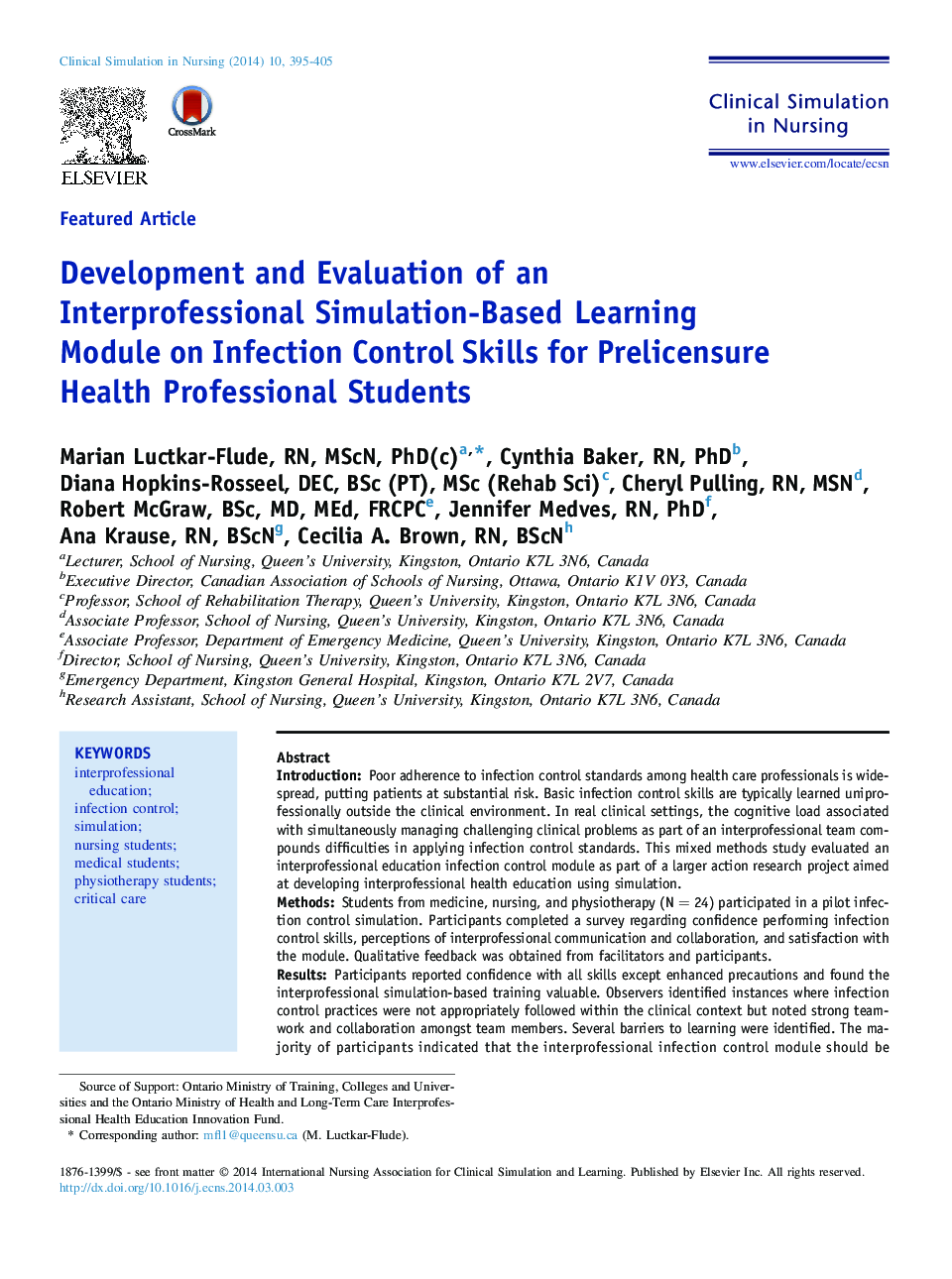| Article ID | Journal | Published Year | Pages | File Type |
|---|---|---|---|---|
| 5868313 | Clinical Simulation in Nursing | 2014 | 11 Pages |
IntroductionPoor adherence to infection control standards among health care professionals is widespread, putting patients at substantial risk. Basic infection control skills are typically learned uniprofessionally outside the clinical environment. In real clinical settings, the cognitive load associated with simultaneously managing challenging clinical problems as part of an interprofessional team compounds difficulties in applying infection control standards. This mixed methods study evaluated an interprofessional education infection control module as part of a larger action research project aimed at developing interprofessional health education using simulation.MethodsStudents from medicine, nursing, and physiotherapy (NÂ =Â 24) participated in a pilot infection control simulation. Participants completed a survey regarding confidence performing infection control skills, perceptions of interprofessional communication and collaboration, and satisfaction with the module. Qualitative feedback was obtained from facilitators and participants.ResultsParticipants reported confidence with all skills except enhanced precautions and found the interprofessional simulation-based training valuable. Observers identified instances where infection control practices were not appropriately followed within the clinical context but noted strong teamwork and collaboration amongst team members. Several barriers to learning were identified. The majority of participants indicated that the interprofessional infection control module should be mandatory for health sciences students. Qualitative analysis revealed recommendations on ways to make this type of session more effective.ConclusionsThis pilot project demonstrated the feasibility of using high-fidelity patient simulation to reinforce infection control skills and promote interprofessional communication and teamwork. Study results support the need for senior health professional students to learn and practice infection control skills in an interprofessional manner and to incorporate complex clinical scenarios in the training.
